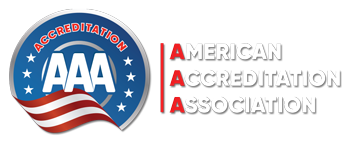A Guide to School Accreditation
Getting into college can be accomplished in a variety of ways, but not every institution offers quality education. There are a plethora of degrees available from diploma mills, but their validity is debatable. In this guide, we will walk through which variables are important for school accreditation.
When a school is evaluated in this way, it is known as accreditation. Accreditation of schools is not a function of the federal government in the United States. Independent, regional accrediting authorities are responsible for carrying out this task. A good test for accrediting agencies’ quality is their recognition by the United States Department of Education. It is a need for a company to apply for recognition and go through a rigorous application procedure and evaluation in order to be authorized by the department.
Eligibility for Student Loans
We’ve put this at the top of the list because it’s a major consideration for most students. An essential aspect in determining whether or not a person can pursue a degree is whether or not they receive financial aid while they are considering attending or returning to school. According to the CHEA, all schools wanting to offer federal financial aid (such as Pell grants or federal student loans) must be accredited… If a school wants to give state-funded financial aid, such as grants or loans, the same holds true.
Students who want to attend an unaccredited institution will have to find another source of funding, such as a personal loan or a private education loan, or pay for it themselves.
One way of looking at financial help is to see it from the perspective of the institution itself, which may receive funds from the federal or state government. Accredited institutions are typically the only ones eligible for these kinds of programs.
Rigorousness in the classroom
If you’re looking to get a good education, you’ll probably want to go to a school that provides it. In the end, you want to leave with the tools and knowledge necessary to pursue or improve in the job or career of your choice.” Credentials that will stand out on a resume and in the eyes of potential employers are something you should strive for. According to Hoey, accreditation should take into consideration not just the academics’ theoretical knowledge, but also their operational and practical skills. Although a degree should be attainable, it should not imply that it is “easy.” An outside curriculum review confirms that a school’s academic requirements and course content satisfy specific criteria.
Knowledge and Skills that are up-to-date
Accreditation considers not just the quality of instruction, but also the relevance and currency of what is being taught, in addition to the quality of instruction. When it comes to many industries, this is becoming increasingly crucial due to technological advancements, globalization, and other issues. There must be up-to-date standards for academic programming and tools and resources like the software students utilize. It also indicates that the expertise of the professors instructing during the programs must be current.
Reputation and Expertise of the Faculty
As a result of accreditation, an institution’s excellent reputation is based on the quality of its professors. The publication and presentation history of a faculty member can be used to gauge their expertise in their subject and among their peers. When it comes to practitioners, the type and length of time they have been working in the field can be important factors to consider. According to Hoey, “you’d expect the faculty members in this program to have some experience as applied experts in the industry” in National’s cybersecurity courses.
Student Retention, Progress, and Graduation
Accreditation looks at more than just what happens in the classroom. Students’ progress in their studies and graduation rates are also examined.
Retention, or the percentage of enrolled students who actually remain in the program after a specific period of time, is taken into account in the accreditation process. Traditional four-year colleges, for example, frequently use the freshman retention rate as a major metric.
As he points out, the Department of Education is paying particular attention to these measures. In the case of a career-focused program: Retention, progression, graduation and, if a career-related program, placement.
An accrediting authority can gain a sense of student and alumni success at various stages by looking at these metrics holistically. Unfilled spaces can suggest that pupils aren’t getting what they need in terms of education and support.
Conclusion
As a result, what does it mean when you talk about an accredited college? In the end, consumer protection is the most important issue. Watchdogs for institutions, accreditation agencies keep schools accountable for the information they communicate with prospective students. Ultimately, it is the responsibility of students to make the most informed choice possible in order to meet their educational goals.
